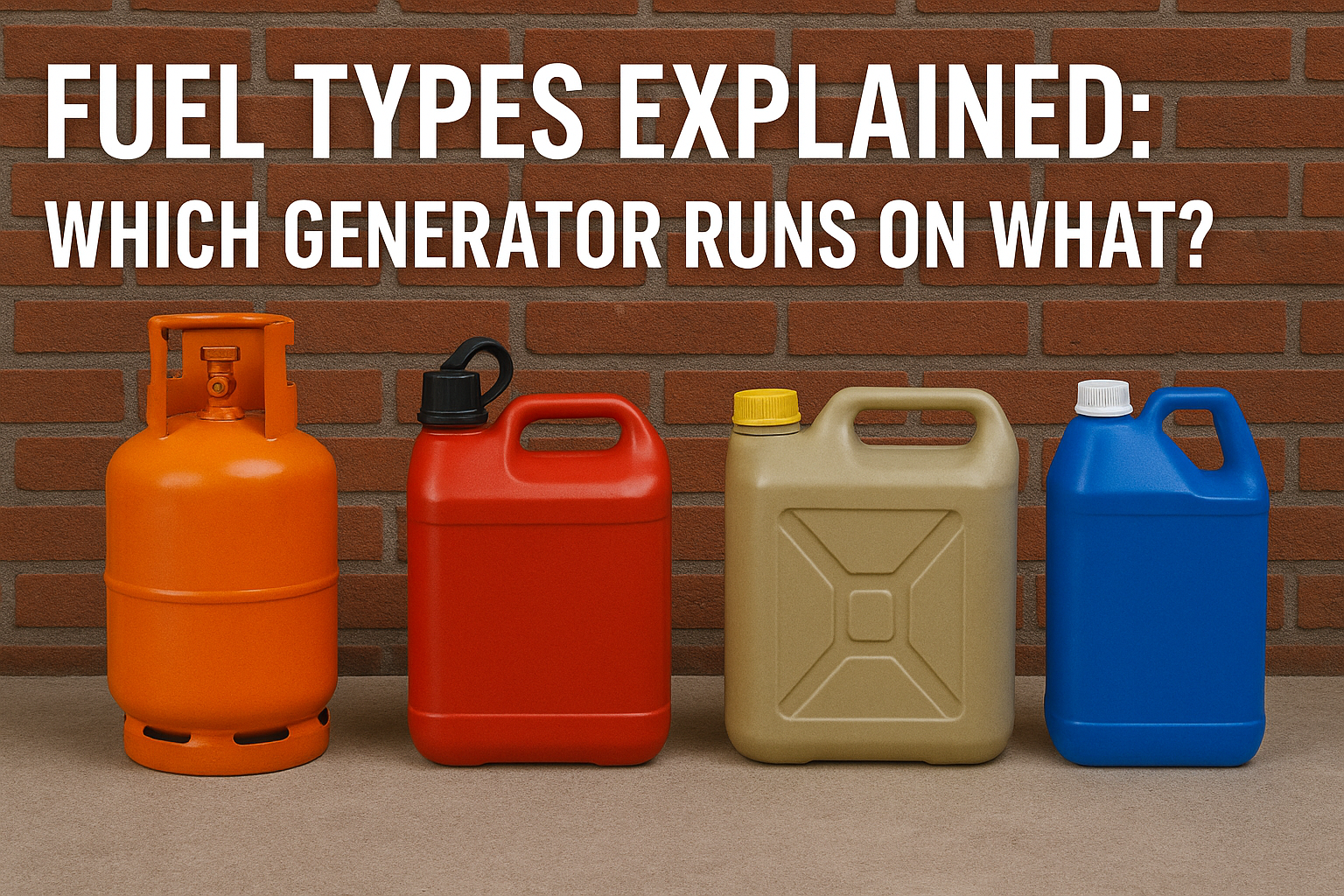Choosing the Right Fuel for Your Generator: What You Need to Know
If you’re in the market for a generator or already own one, you might have paused over a pretty important question:
“What kind of fuel does this run on?”
Understanding generator fuel types isn’t just about filling the tank—it affects performance, cost, convenience, and even how long your generator will last. Let’s dig into the basics and help you make sense of which fuel works best for your power needs.
The Most Common Generator Fuels—and What They Mean for You
Generators come in different types depending on the fuel they use. The main options are:
- Gasoline (Petrol)
- Diesel
- Propane (LP Gas)
- Natural Gas
- Solar (Electric, technically a power source, but worth mentioning)
Each fuel type has its own pros and cons, making them better suited for different situations.
Gasoline: The Popular Choice for Portability
Gasoline generators are what most people picture first. They’re widely available, easy to find at gas stations, and good for smaller portable units used around homes or on job sites.
Pros:
- Easy to refuel almost anywhere
- Lower upfront cost for generator models
- Good for short-term, portable power needs
Cons:
- Gasoline can spoil if stored long-term
- Produces more emissions
- Usually noisier than other types
If you need a generator for camping trips, small emergencies, or occasional use, a gasoline model might be your go-to.
Diesel: Heavy-Duty and Fuel-Efficient
Diesel generators are known for their reliability and durability, especially on larger standby or commercial units.
Pros:
- More fuel-efficient over long runs
- More torque, great for heavy loads
- Diesel fuel is less flammable than gasoline
Cons:
- Higher upfront costs for equipment
- Can be louder and heavier
- Diesel fuel can gel in cold weather (needs additives)
For powering big homes, farms, or business operations during outages, diesel is often the preferred fuel.
Propane: Cleaner and Convenient
Also called LP (liquid propane), propane generators are becoming popular for home backup power.
Pros:
- Burns cleaner than gas and diesel, fewer emissions
- Long shelf life of fuel (years if stored right)
- Quiet operation compared to gasoline and diesel
Cons:
- Requires larger tanks or regular refills
- Less power output compared to diesel or gas units with the same size
- Fuel can be harder to find in very remote areas
Propane works well for those who want a cleaner, quieter option and have a tank installed on their property.
Natural Gas: A Steady and Cost-Effective Option
Natural gas generators are mostly used for standby setups connected directly to gas lines.
Pros:
- Unlimited fuel supply from your utility provider
- Clean burning with low emissions
- No need to refuel regularly
Cons:
- Only works if you have natural gas piping at your location
- Higher installation cost
- Not portable—tied to your home’s gas connection
Natural gas ensures you don’t run out of fuel, making it ideal for long-term backup power without the hassle.
Solar Generators: The Eco-Friendly Alternative
Though not traditional fuel-powered generators, solar battery-powered generators are gaining attention as green options.
Pros:
- Zero emissions and silent operation
- Renewable energy—no fuel cost
- Portable and easy to use
Cons:
- Limited power output and runtime compared to fuel generators
- Dependent on sunlight for recharging
- Higher initial investment
Solar suits off-grid living and those wanting a modern, eco-conscious generator alternative.
How to Pick the Right Fuel Type for You
Ask yourself these questions:
- How long do I need the generator to run continuously?
- Do I have easy access to fuel?
- What’s more important—power, noise level, or environmental impact?
- Will I need portability, or is the generator stationary?
- What’s my budget for buying and running a generator?
Each fuel type fits different needs, so think about your priorities before making a choice.
Quick Tips for Safe Fuel Use
- Always store fuel in approved containers in a cool, dry place.
- Avoid keeping gasoline or diesel fuel too long; rotate stock regularly.
- Follow manufacturer instructions for refueling and maintenance.
- Use fuel stabilizers if you expect long storage periods.
Wrapping Up: Fuel Up with Confidence
Your generator’s fuel type impacts everything from engine life to how often you’ll be at the gas station. Whether you favor gasoline’s convenience, diesel’s muscle, propane’s clean burn, natural gas’s constant supply, or solar’s green credentials, knowing each option helps you power your world better.
Need help deciding? Think about how and where you’ll use your generator, and choose a fuel type that makes your life easier, not more complicated.
